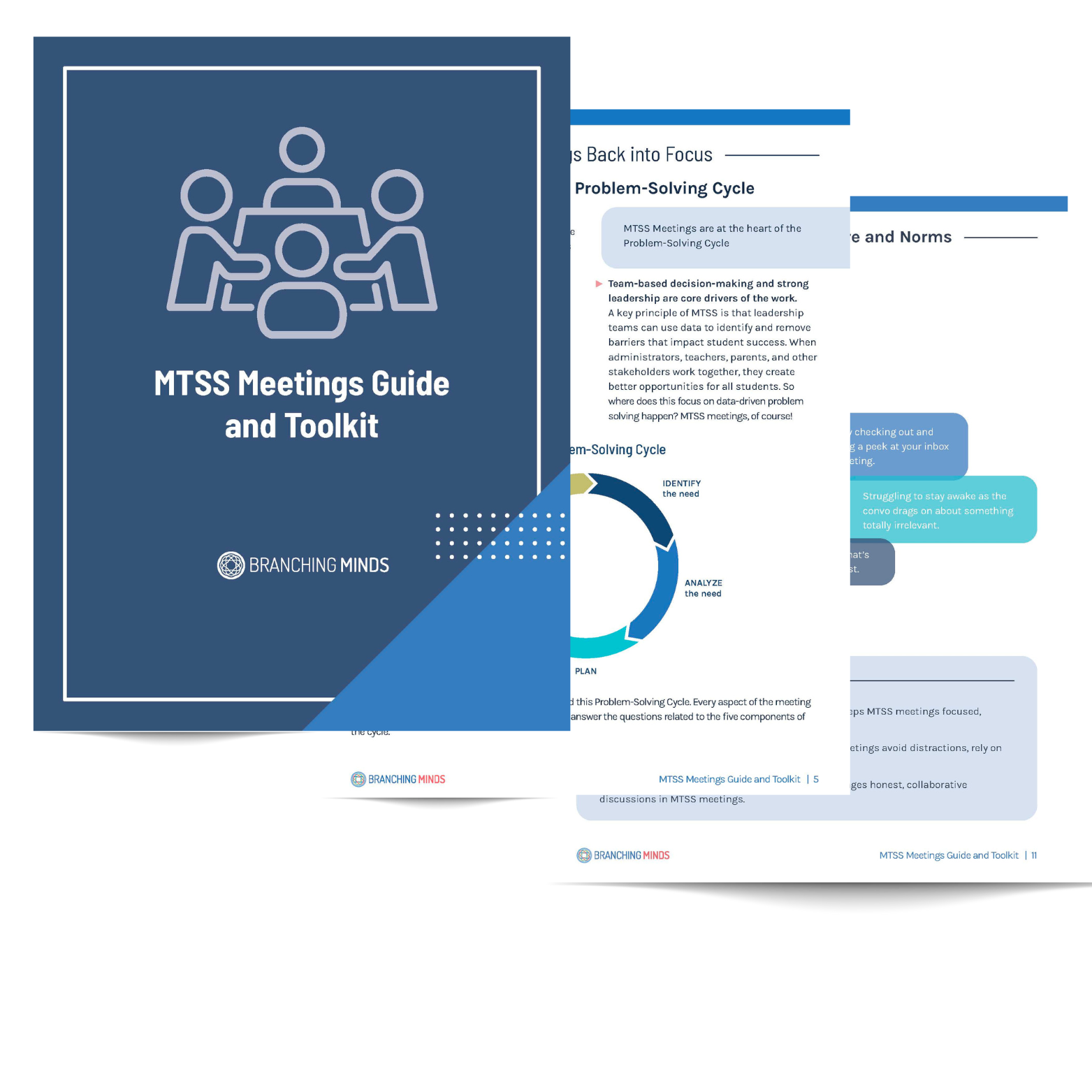Guide
MTSS Meetings Guide and Toolkit
Refocus Your MTSS Meetings
No matter your role - teacher, principal, campus specialist, or district administrator - you spend significant time in meetings related to student support. And no matter your role, you have likely seen the same MTSS meeting challenges and pitfalls over and over.
It’s time to do what works: bring your MTSS meetings back into focus!
- Refocus on your WHY: MTSS meetings are at the heart of the problem-solving process, whether at the student, campus, or district level.
- Refocus on your WHAT: One size does not fit all - use the right meeting format for the right purpose.
- Refocus on your HOW: Follow meeting best practices to ensure every minute is well spent.
- Refocus on your WHO: Make sure key stakeholders are at the table and understand their roles.
Ready to transform your MTSS meetings into a source of real progress? Download the MTSS Meetings Guide & Toolkit!












